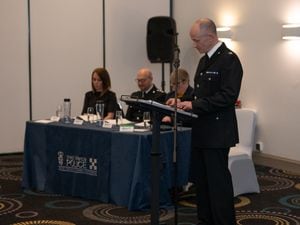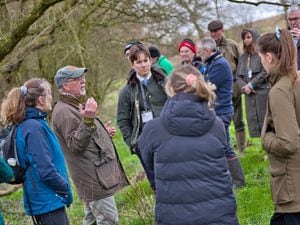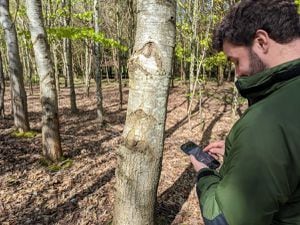Shropshire professor's role as paralysed knife victim walks again
A Shropshire professor who played his part in the research work that has led to paralysed man has been able to walk again using a frame says the work should help others.
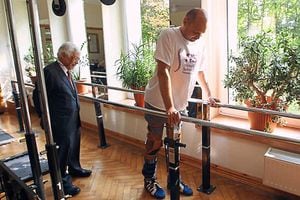
Polish fireman Darek Fidyka underwent after a pioneering therapy that involved transplanting cells from his nasal cavity into his spinal cord. He was paralysed from the chest down in a knife attack in 2010.
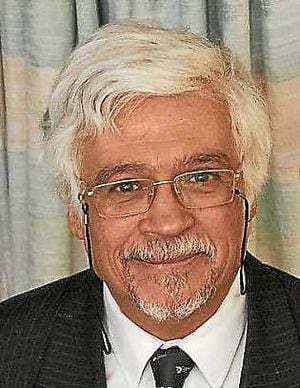
The treatment, a world first, was carried out by surgeons in Poland in collaboration with scientists in London.
Professor Wagih El Masri, former director of the Midlands Centre for Spinal Injuries in Oswestry, travelled to Poland earlier this month as an independent assessor to the research and the therapy and met Mr Fidyka.
"He is delighted with the improvement and that is wonderful. I was pleased with his state-of-mind," he said.
"I do believe that there is a definite, modest, clinical and neurological improvement and that there are compelling reasons to pursue the research.
"However, I would want to see how much benefit there is in not only the short term but also the medium and the long term."
"The research needs to be completed with a few more patients to give a better indication of how important this is."
The treatment used specialist cells that form part of the sense of smell, with surgeons transplanting them into the spinal cord.
Four thin strips of nerve tissue were taken from the patient's ankle and placed across a gap on the left side of the cord.
The scientists believe the cells provided a pathway to enable fibres above and below the injury to reconnect, using the nerve grafts to bridge the gap in the cord.
Professor El Masri, who has spent 43 years working with spine injured patients, said that at the moment this was not a miracle cure.
"Patients should not have huge expectations, this is not a miracle but it is something worth of pursuing," he said. "The patient still uses a wheelchair much of the time.
"Spine injured people can go on to live very full lives, whether in work, or in sport or in family life. However, it is still important to continue to find some better ways of saving physical functioning for patients."

